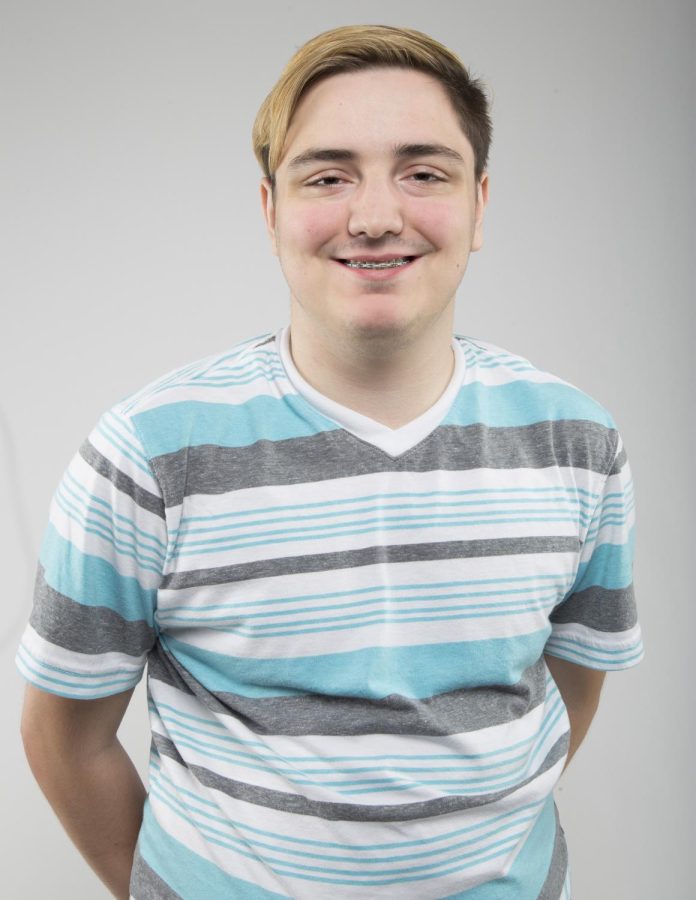Opinion: The activist, the prophet, the leader: Obama says farewell
January 11, 2017
Barack Obama, the 44th and current president of the United States, made his farewell address to the American people Tuesday night.
In his adopted home of Chicago, Obama stepped onto the stage at McCormick Place — the largest convention center in North America — to thunderous applause.
Throughout the night, Obama exemplified three sides of the man who has filled the role of commander in chief over the past eight years: the activist, the prophet and the leader.
He has been a known activist since he took a job in the predominantly poor and black Chicago’s South Side as a community organizer in 1984. Shades of that young man shone in his final speech to the American people 33 years later.
He spoke of the social progress the U.S. has made in the past eight years; “If I had told you that we would win marriage equality and secure the right to health insurance for another 20 million of our fellow citizens — if I had told you all that, you might have said our sights were set a little too high,” he said, discussing the accomplishments of his administration.
While reiterating his claim he would support a Republican healthcare bill if they could prove it is more effective than his, Obama summed up his role as an activist clearly: “Because that, after all, is why we serve. Not to score points or take credit. But to make people’s lives better.”
In his address, he never turned his back on the one-word mantra that highlighted his 2008 campaign: “hope.” But while he spoke with pride and joy on his face about the economic and social strides that took place during his tenure, he also spoke of the dangers of complacency.
Throughout the night, Obama voiced what he sees as the three threats to American democracy heading into the future: lack of equal economic opportunity, racial tensions and ideological polarization.
“But, for all the real progress that we’ve made, we know it’s not enough,” he said of the economic situation he is leaving behind. “While the top 1 percent has amassed a bigger share of wealth and income, too many of our families in inner cities and in rural counties have been left behind.”
“Now there are no quick fixes to this long-term trend,” he continued. “I agree, our trade should be fair and not just free. But the next wave of economic dislocations won’t come from overseas. It will come from the relentless pace of automation that makes a lot of good middle class jobs obsolete.”
He refused to shy away from the tense race relations that have escalated during his time in office, saying “After my election there was talk of a post-racial America. And such a vision, however well intended, was never realistic. Race remains a potent and often divisive force in our society.”
After acknowledging the improvements in race relations he has witnessed in his life, he framed racial equality in an economic sense, arguing “If every economic issue is framed as a struggle between a hard working white middle class and an undeserving minority, then workers of all shades are going to be left fighting for scraps while the wealthy withdraw further into their private enclaves.”
“If we’re unwilling to invest in the children of immigrants, just because they don’t look like us, we will diminish the prospects of our own children,” he continued, “because those brown kids will represent a larger and larger share of America’s workforce.”
He later turned to political polarization — an issue he said is facilitated because “it’s become safer to retreat into our own bubbles, whether in our neighborhoods or on college campuses, or places of worship, or especially our social media feeds, surrounded by people who look like us and share the same political outlook and never challenge our assumptions.”
As he looked to the future yet again during his address, he claimed that “without a willingness to admit new information and concede that your opponent might be making a fair point, and that science and reason matter, then we’re going to keep talking past each other.”
Obama’s prophetic eye toward the future often kept him in check during his tenure in office, and on this day, kept his optimism in check as he prepares to finally step aside.
For all the time the activist and the prophet spent at the podium, Barack’s leadership was evident as well.
As the night begun and the estimated crowd of 18,000 cheered and applauded for the sole man approaching the podium, Obama — despite the impending momentous speech — joked with them:
“You can tell that I’m a lame duck because nobody is following instructions,” he said. “Everybody have a seat.”
And so they sat.
Obama has spent the last eight years enduring the dawn of an age where everyone has a public forum, and any one voice has a chance to break out of the void.
The criticism he has faced over his two terms as president have been enough to crush any rational man; yet, that irrational refusal to crumble under pressure is what defined his two terms and office and earned him respect across the political spectrum.
As he thanked his own family — including first lady Michelle Obama and his children — along with Vice President Joe Biden, tears welled up in his eyes and mine. No longer was the leader on stage, nor the activist and prophet.
It was the human being.
As Obama leaves office and once again becomes, as he put it, “the most important office in a democracy: citizen,” I can look back knowing that the views I am proud to hold today were informed by, fought for and held by one of the most exemplary human beings I have ever witnessed.
Nicholas Hunter is a columnist, contact him at [email protected].

























